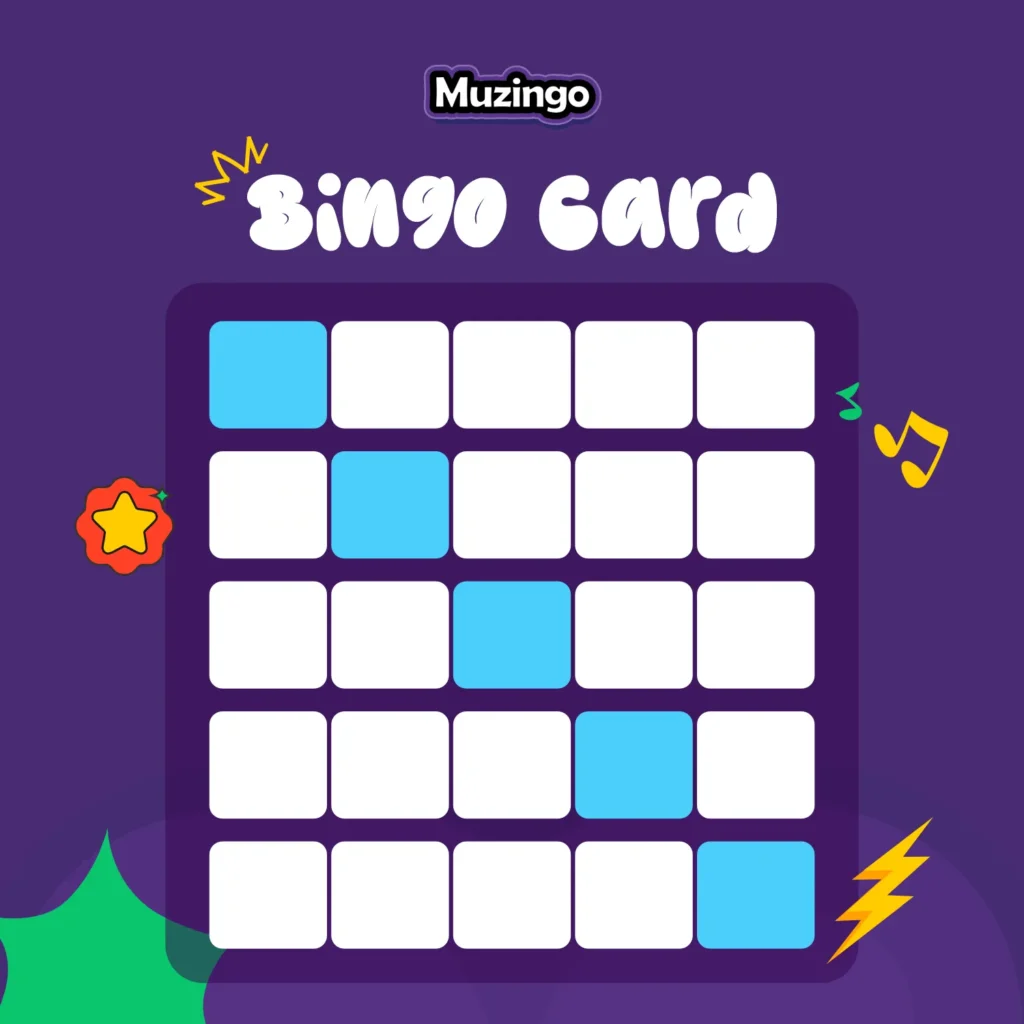If you’ve ever shouted “Bingo!” at a lively hall or tapped along to songs while marking your card, you’re part of a tradition that’s been bringing people together for centuries. Bingo isn’t just a game, it’s a social staple that has evolved from simple lotteries to high-energy entertainment.
In this post, we will talk about the history of bingo and see how music bingo is adding a fresh spin, making gatherings more exciting than ever. Stick around for some surprising facts and tips.
RELATED BLOG POST
- What is Music Bingo – A Detailed Guide for Beginners
- Discover 10 Bingo Facts That You Never Knew
- 10 Must-Have Tools to Host a Music Bingo Event
- 15 Unbeatable Music Bingo Themes to Brighten Up your Events
The Origins and History of Traditional Bingo
Bingo has a rich backstory that spans continents and eras. It’s more than random numbers. It is a game rooted in community and chance. Let’s break it down step by step.
Where Did Bingo Originate?
The history of bingo and bingo’s story starts in Italy around 1530, where it began as a lottery called Lo Giuoco del Lotto d’Italia. This early version helped fund public projects and is still played weekly in Italy today, contributing millions to the economy. From there, it spread across Europe, adapting to local cultures along the way.
Original Name of Bingo
The original name of bingo was “Lo Giuoco del Lotto d’Italia” in Italy. As it moved to France in the late 1770s, it became “Le Lotto,” popular among the elite for social evenings. By the 1800s, Germans used a similar game to teach kids math and history, showing its versatile appeal.
What Was Bingo Originally Called
What was bingo originally called? In its earliest form, it was simply the Italian lottery mentioned above. When it hit the U.S. in the 1920s, folks at carnivals knew it as “Beano,” marking cards with beans. That changed quickly, though, leading to the name we all recognize.
Who Made Bingo – History of Bingo
Who made bingo as we know it? Credit goes to Edwin S. Lowe, a New York toy salesman. In 1929, he saw “Beano” at a Georgia carnival and brought it home. An excited player yelled “Bingo!” by mistake, and Lowe ran with the name, commercializing it. He even hired math professor Carl Leffler to create 6,000 unique cards to avoid duplicates.
Origin of Bingo
The origin of bingo ties back to that 16th-century Italian game, but its global spread came through Europe and the U.S. Hugh J. Ward standardized rules in the 1920s, paving the way for Lowe’s mass production.
Image by Kateryna Hliznitsova on Unsplash
The Birth and Evolution of Music Bingo
Now, let’s shift to the modern vibe. Music bingo swaps numbers for song titles or clips, blending nostalgia with beats. It is like traditional bingo met a DJ set.This variant kicked off as a 1958 TV show where players identified tunes.
By the 2000s, it hit bars and events, thanks to apps and playlists. Platforms like Muzingo make it simple; pick a genre, share a code, and play.
Cards list songs or artists; a host plays 30-60 second clips and players make matches to form lines. Themes range from 80s hits to hip-hop, keeping it fresh.
Check out bingo facts on Muzingo’s blog for more on variations.
Why Music Bingo is Revolutionizing Parties Globally
Music bingo is changing how we party. It’s interactive, easy, and gets everyone involved, no skills needed.
First, it boosts engagement. People sing along, share stories about songs, and cheer wins.
Perfect for bars, weddings, or virtual hangs.
It is inclusive too. All ages and tastes join in, from kids’ Disney themes to adults’ rock nights.
Take Your Game Nights to the Next Level
Muzingo is a fun game where players listen to music tracks and match them to bingo cards — competing to win prizes with friends.
Play Muzingo FreeNo Card Required
Globally, it is booming in U.S. pubs, UK events, and even online worldwide via apps like Muzingo.
Millions play online variants yearly, with participation spiking at social spots. It echoes bingo’s fundraising roots but adds music’s communal power.
Below are some key benefits and challenges for hosting:
Benefits:
- Builds connections through shared tunes.
- Customizable for any group.
- Low setup cost with apps.
- High fun factor for all.
Challenges:
- Requires decent audio setup.
- Song recognition can vary.
- Licensing for public events.
- Tech glitches in virtual play.
Check here for 10 must have tools for hosting a music bingo event
Final Thoughts
From its humble start in Italy to today’s digital twists, the history of bingo proves it is a game that adapts and thrives. Music bingo takes that legacy further, turning ordinary gatherings into memorable, tune-filled experiences worldwide.
Ready to give it a try? Head over to playmuzingo.com and host your own game, join or create a playlist for free and see the fun unfold!
READ MORE: 10 Engaging Music Bingo Activities for Elementary Students
FAQs
What is the origin of bingo?
Bingo originated in Italy in 1530 as a lottery game called Lo Giuoco del Lotto d’Italia, which later spread to other countries.
How does music bingo differ from traditional bingo?
Instead of numbers, music bingo uses song titles or clips on cards, with players marking matches as tunes play, adding a musical layer to the classic format.
Why is music bingo great for parties?
It’s engaging and social, encouraging singing and interaction, making it ideal for diverse groups and events like birthdays or team building.


